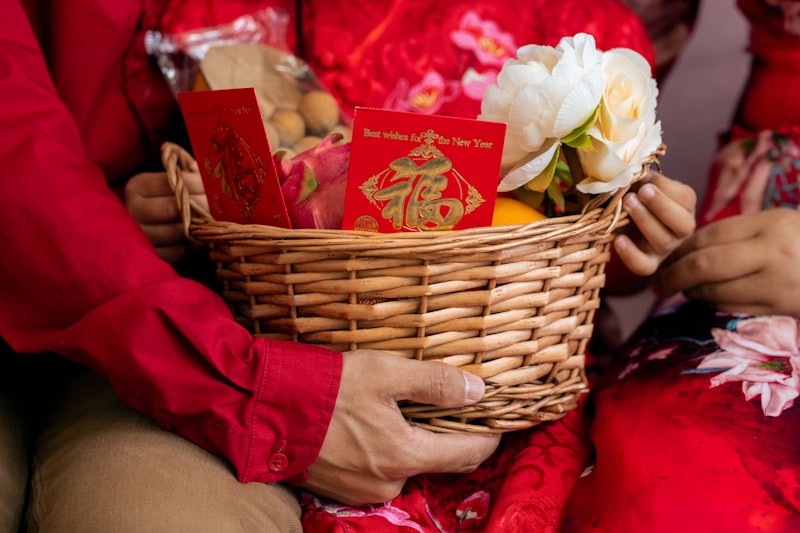Cultural Influences in Wedding Personalization: A Global Perspective
Cultural Influences in Wedding Personalization: A Global Perspective
Weddings are not just a celebration of love; they are a reflection of cultural identities, traditions, and personal stories. In recent years, the trend of wedding personalization has gained tremendous popularity, allowing couples to create ceremonies that truly represent their unique backgrounds and values. This article delves into the various cultural influences in wedding personalization, exploring how different traditions shape modern weddings and provide ideas for those looking to infuse cultural elements into their special day.
Understanding Wedding Personalization
Wedding personalization refers to the process of tailoring a wedding to the couple's tastes, preferences, and cultural backgrounds. It involves selecting specific themes, colors, rituals, and even cuisines that hold personal significance. By recognizing and integrating these elements, couples can create a more intimate and meaningful celebration.
Why Cultural Influences Matter
Cultural influences play a crucial role in wedding personalization for several reasons:
- Connection to Heritage: By incorporating cultural elements into their wedding, couples honor their heritage and create a bond with their roots.
- Sharing Traditions: Weddings are often a mix of families from diverse backgrounds. Personalizing a wedding with different cultural aspects allows families to share and celebrate their traditions.
- Creating Unique Experiences: Personalized weddings stand out, making the experience memorable for both the couple and their guests.
Global Cultural Influences on Weddings
Throughout the world, weddings are steeped in unique customs and practices that vary significantly from one culture to another. Here are a few prominent cultural influences that shape wedding personalization:
| Culture | Common Traditions | Personalization Options |
| Chinese | Red color symbolism, tea ceremonies | Custom vows, personalized tea sets |
| Indian | Mehendi ceremonies, Saptapadi (seven vows) | Themed decorations, personalized bridal attire |
| Western | White wedding dresses, exchanging vows | Custom playlists, unique floral arrangements |
| Jewish | Breaking the glass, chuppah ceremony | Personalized ketubah, individual family traditions |
Chinese Weddings
In Chinese culture, weddings are often celebrated with a rich array of rituals that symbolize prosperity and happiness. One of the most significant aspects is the use of the color red, which represents good fortune. Couples often opt for red wedding dresses and decorations. Incorporating traditional tea ceremonies, where the couple serves tea to their elders, can also add a personal touch. To further personalize the wedding, couples might choose customized tea sets or include calligraphy in their invitations, showcasing their love story.

Indian Weddings
Indian weddings are known for their vibrancy and grandeur. The Mehendi ceremony, where intricate henna designs are applied to the bride's hands, is a notable tradition. Additionally, the Saptapadi, where the couple takes seven steps together, is a sacred ritual. Couples looking to personalize their Indian weddings can incorporate thematic decorations based on regional influences or choose unique bridal attire reflecting their heritage. Personalized elements such as bespoke wedding favors or customized bridal jewelry can also enhance their celebration.
Western Weddings
In Western cultures, weddings typically feature white wedding dresses and the exchange of vows. Modern couples often personalize their weddings by choosing unique themes that reflect their interests, such as vintage, rustic, or modern styles. Custom playlists featuring their favorite songs can add to the experience, while unique floral arrangements can set the mood. Additionally, personalized vows or love letters can create a meaningful moment during the ceremony.
Jewish Weddings
Jewish weddings incorporate rich traditions, such as the breaking of the glass, which symbolizes the fragility of relationships and the joy of love. The chuppah, a beautifully decorated canopy under which the couple is married, often features personal elements, such as family heirlooms or floral arrangements that hold special meaning. Couples can further personalize their Jewish wedding by creating a unique ketubah, or marriage contract, that reflects their values and promises to each other.
Incorporating Cultural Influences into Your Wedding
For couples looking to personalize their wedding while honoring their cultural influences, here are some practical tips:
- Research Your Heritage: Dive into your family history to discover unique traditions that can be incorporated into your wedding.
- Be Open to Blending: Combine elements from both partners' cultures to create a harmonious and inclusive celebration.
- Consult Family Members: Involve family members in the planning process to gain insights into traditional practices and customs that can be included.
- Stay True to Yourself: While traditions are important, ensure that your personalization reflects your personality as a couple.
Final Thoughts: The Importance of Personalization in Weddings
As we've explored, cultural influences in wedding personalization enrich the experience, allowing couples to create a celebration that is not only meaningful but also a blend of traditions. By thoughtfully integrating these cultural elements, couples can honor their heritage while crafting a unique story to share with their family and friends. Whether it’s through special rituals, food, attire, or décor, the possibilities for personalization are limitless. For couples planning their wedding, it’s essential to embrace these cultural influences and make choices that resonate personally, ensuring a day that will be cherished forever.
When planning your wedding, remember to take time to consider how your cultural backgrounds can influence your special day, and don’t hesitate to create a celebration that feels authentically "you!"
